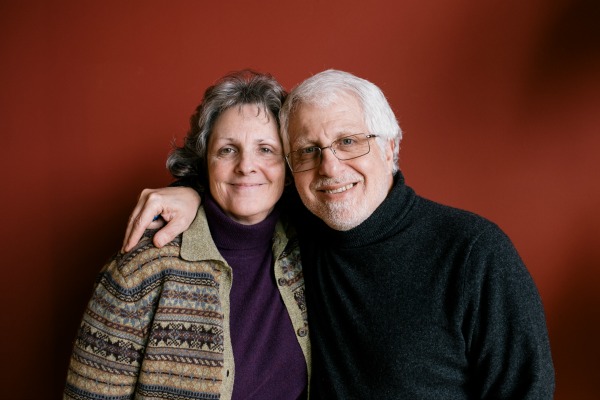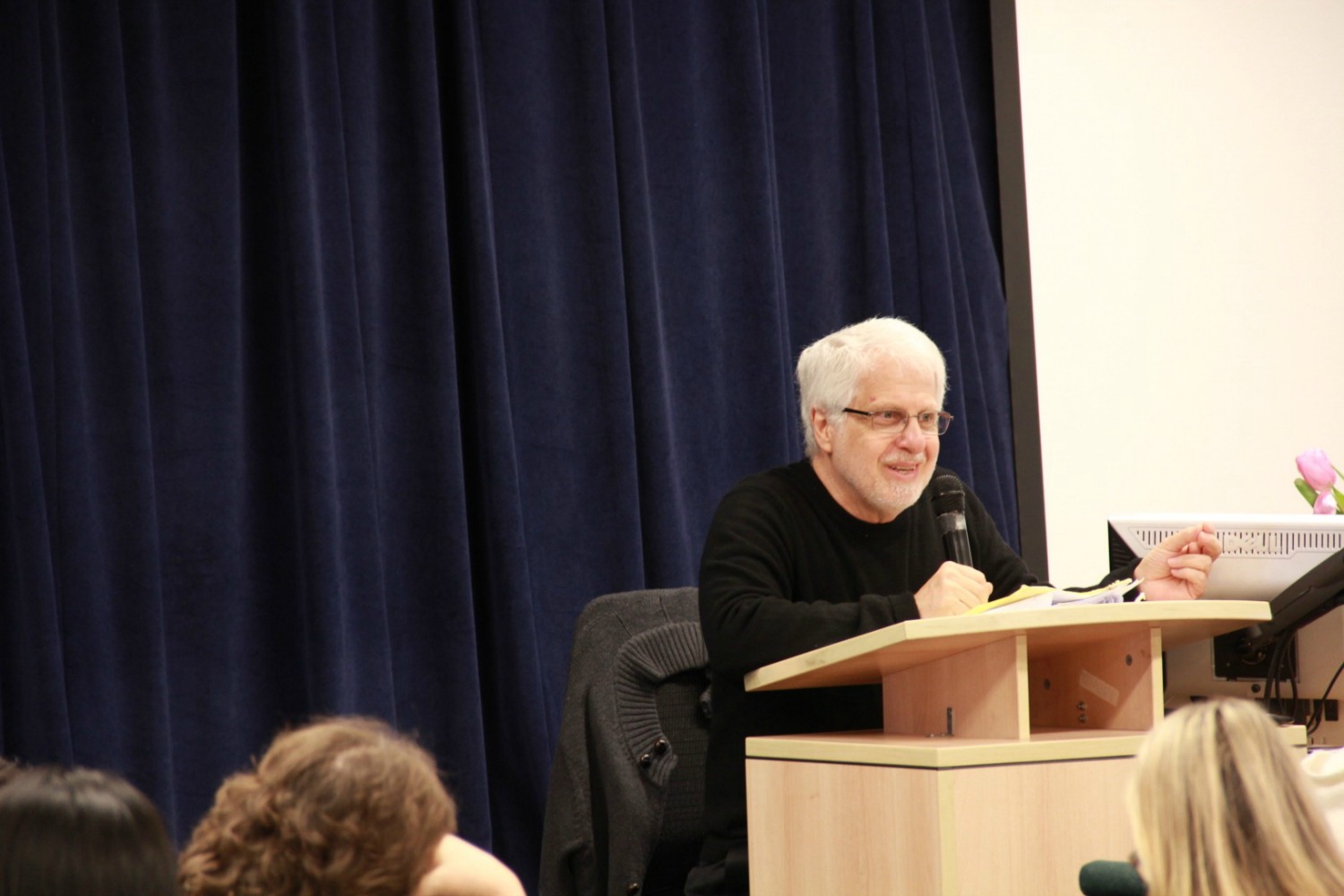Last weekend, The Seattle School of Theology & Psychology hosted an all-day seminar with Dr. Avedis Panajian, a renowned psychoanalyst, professor, psychologist, and lecturer. The annual event is offered as a partnership between the Center for Object Relations, the Northwest Alliance for Psychoanalytic Studies, and The Seattle School, and features facilitated group discussions to enrich the ideas, stories, and case studies offered by Dr. Panajian.
Dr. O’Donnell Day, Associate Professor of Counseling Psychology and Internship Director at The Seattle School, helps organize and execute the event every year. “Dr. Panajian had a deep influence on me, especially in the area of listening to myself as I listen to my patient,” says Dr. Day. “He is someone who continues to work with himself as he works with severe psychopathology. For students and clinicians alike, exposure to the complexity of Dr. Panajian’s work is useful and accessible, which I appreciate about him.”

Dr. O’Donnell Day & Dr. Avedis Panajian
Dr. Panajian is a Fellow of the International Psychoanalytical Association, a certified psychoanalyst, senior lecturer, and licensed psychologist in California. He has served as a board member of the Western Regional Board for Diplomates in Clinical Psychology of the American Board of Professional Psychology, and he as chaired Diplomate examinations and served as a licensure examiner for many years for the California Board of Psychology, from which he has also received the Distinguished Educator Award. Dr. Panajian is also a supervising and training analyst at the Psychoanalytic Center of California, the Institute of Contemporary Psychoanalysis, and the Newport Psychoanalytic Institute. His research interests include infantile development, trauma, and the treatment of severe emotional disorders.
In this year’s lecture at The Seattle School, “Psychotic Aspects of Personality Organization,” Dr. Panajian discussed the essential role of countertransference and emotional crises in working with psychotic patients. He integrated ideas from the intellectual giants of the field, including Sigmund Freud, Melanie Klein, Wilfred Bion, and others, and he shared insights from his own decades of experience and practice.
Dr. Panajian also talked about the need for therapists to be rooted and embedded in the present situation, attuned to the particular time and place, and aware of how their bodies are reacting. Psychosis is always rooted in the body, he said, so therapists will not be able to intervene creatively if they are not attuned to their own body and the body of the patient. “Therapists are notorious for hiding behind words, which is a disease of the profession,” said Dr. Panajian. “A therapy of words is nothing but false.”
The seminar was attended by students in Dr. Day’s Psychopathology II course, other alumni and students from The Seattle School, members of the Northwest Alliance and the Center for Object Relations, and other clinicians and practitioners.
The event was just one day after the 2016 Internship Fair, an event offered to MA in Counseling Psychology students who are planning to pursue an internship beginning in the next fall term. This year’s fair featured supervisors and current interns from more than 30 sites—the largest site participation yet for the annual event. The Internship Fair is a crucial resource to students, and the event also serves to enrich and deepen the relationships between The Seattle School and a variety of internship sites throughout the Puget Sound area.
These two events mark a seminal moment in the academic careers of psychology students at The Seattle School, as they begin to look toward internship and applying in practice everything they have learned and discussed in the classroom. Grounded in our commitment to educating and equipping practitioners and leaders who are robustly Christian, deeply questioning, and profoundly human, The Seattle School will continue to offer compelling events, workshops, and conferences that invite students, alumni, and the broader community to step more deeply into their ongoing work in theology, psychology, and culture.

